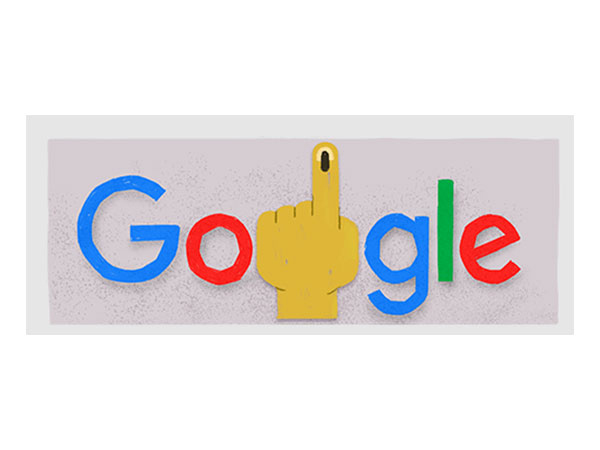New Delhi, April 26: As India continues its monumental democratic exercise, Google joined in to mark the second phase of the Lok Sabha Elections 2024 with a symbolic gesture.
On Friday, Google launched a Doodle on its homepage, replacing its iconic logo with an image depicting an uplifted index finger marked with ink – a symbol synonymous with the democratic process of Indian elections.
By clicking on the Doodle, users are directed to the search results related to the latest updates on the elections in India.
Polling commenced todayacross 88 constituencies spread across 13 states and Union Territories in the second phase of the 18th Lok Sabha elections. Prime Minister Narendra Modi and Union Home Minister Amit Shah both took to social media platforms to encourage citizens to participate in record numbers.
Prime Minister Modi emphasized the importance of each vote, urging young and female voters to turn out in great numbers.
Similarly, Home Minister Amit Shah appealed to citizens to contribute to the democratic process by exercising their right to vote for a stronger, secure, and prosperous nation.
The voting process, which began at 7 am and will be concluded at 6 pm, is part of a seven-phased Lok Sabha election, scheduled to end on June 1, with vote counting set for June 4.
According to the Election Commission of India, 88 constituencies across various states and Union Territories participated in the second phase of the Lok Sabha polls. Notably, Kerala and Karnataka saw the highest number of constituencies going to polls, with all 20 seats in Kerala and 14 seats in Karnataka up for grabs.
A total of 1202 candidates, including 1098 males and 102 females, contested in this phase, vying for the votes of over 8.08 crore male and 7.8 crore female voters. Additionally, 5,929 third-gender electors and 34.8 lakh first-time voters participated in the electoral process.
To ensure a smooth and inclusive voting experience, the Election Commission implemented various measures. These included webcasting in over 50 per cent of polling stations, deployment of micro-observers, and setting up model polling stations with local themes.
Moreover, over 4100 polling stations were managed entirely by women, and over 640 polling stations were managed by Persons with Disabilities (PwDs), reflecting the commitment to an inclusive electoral process. (Agencies)


